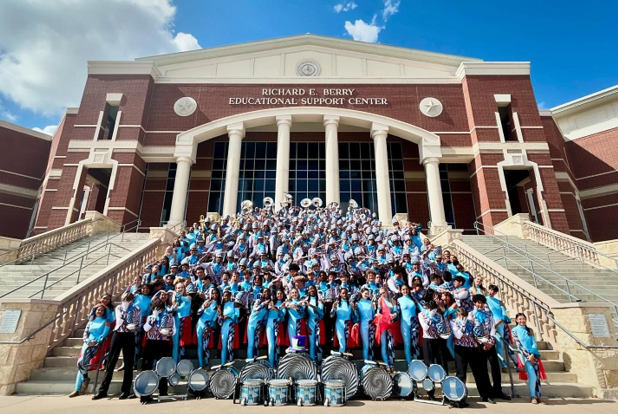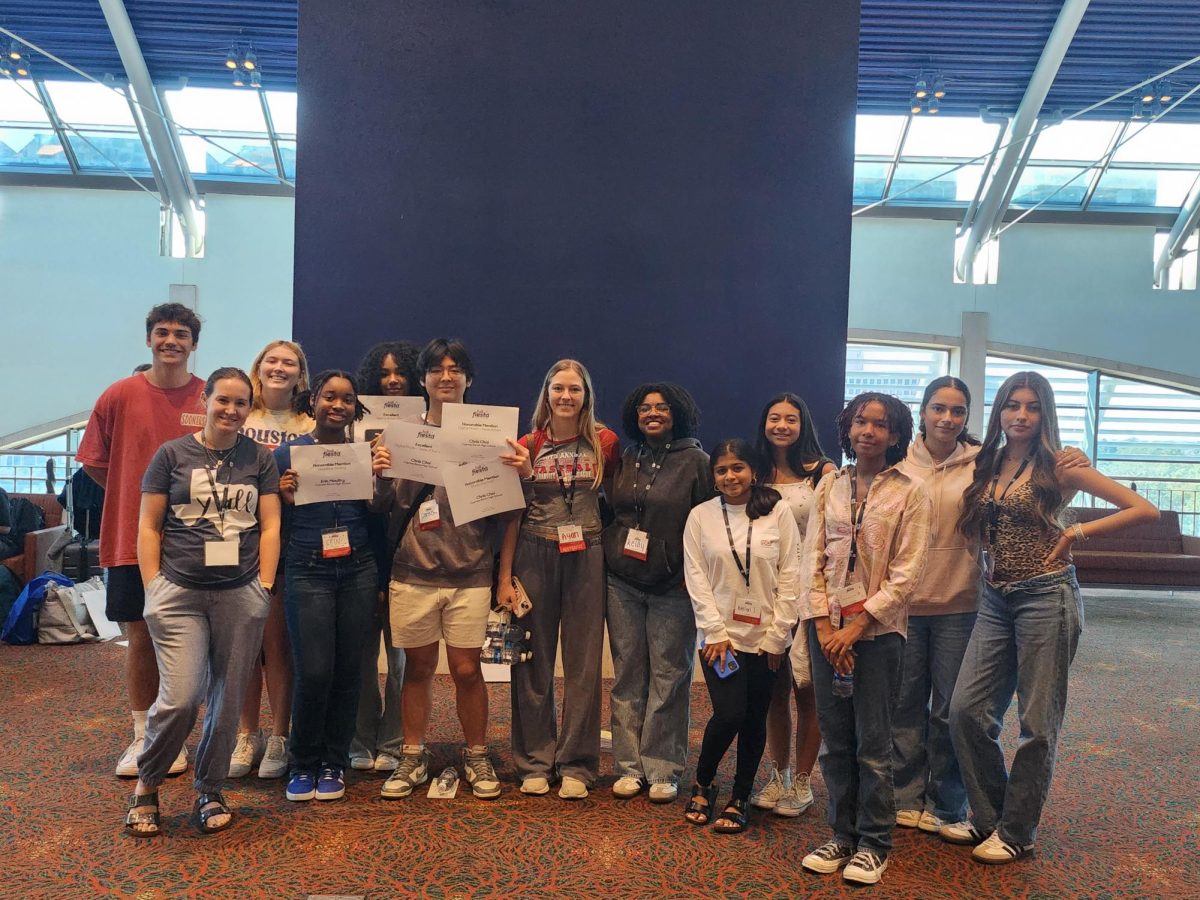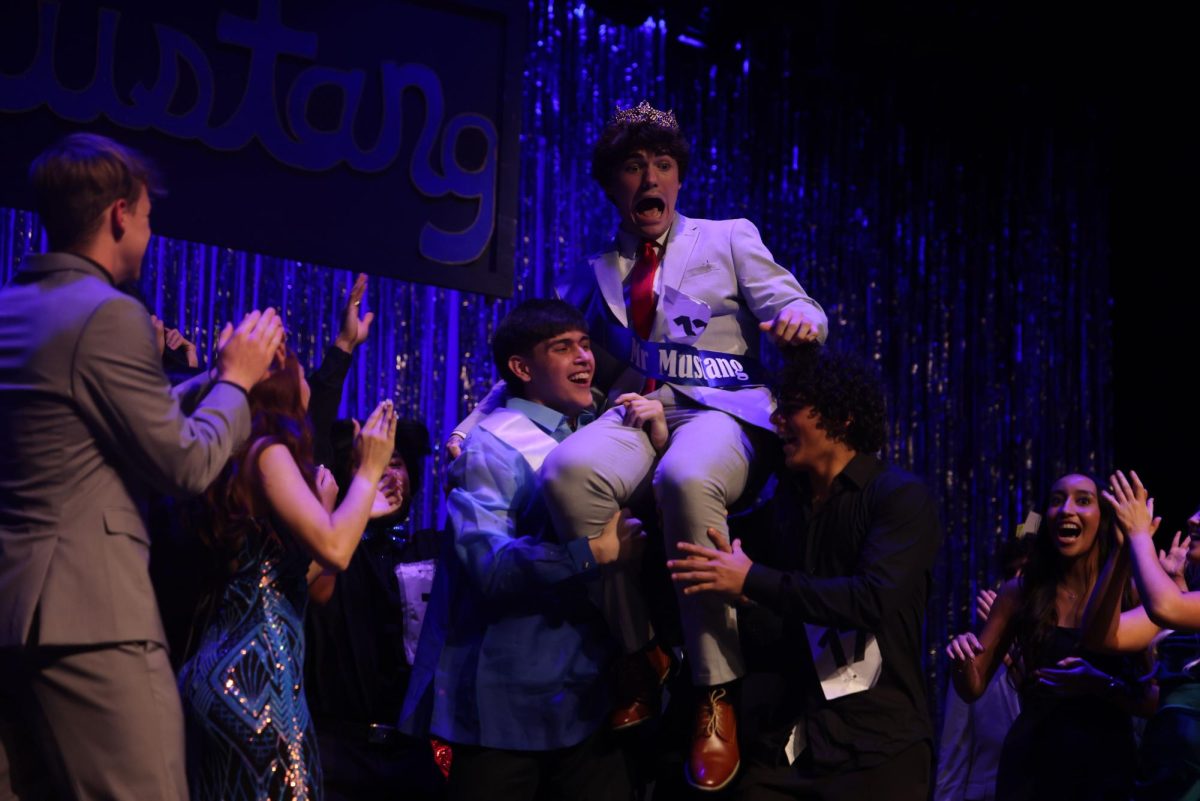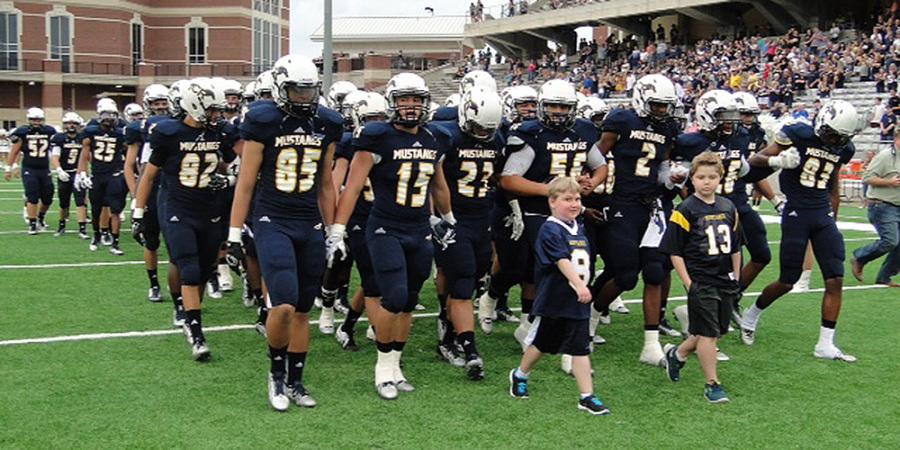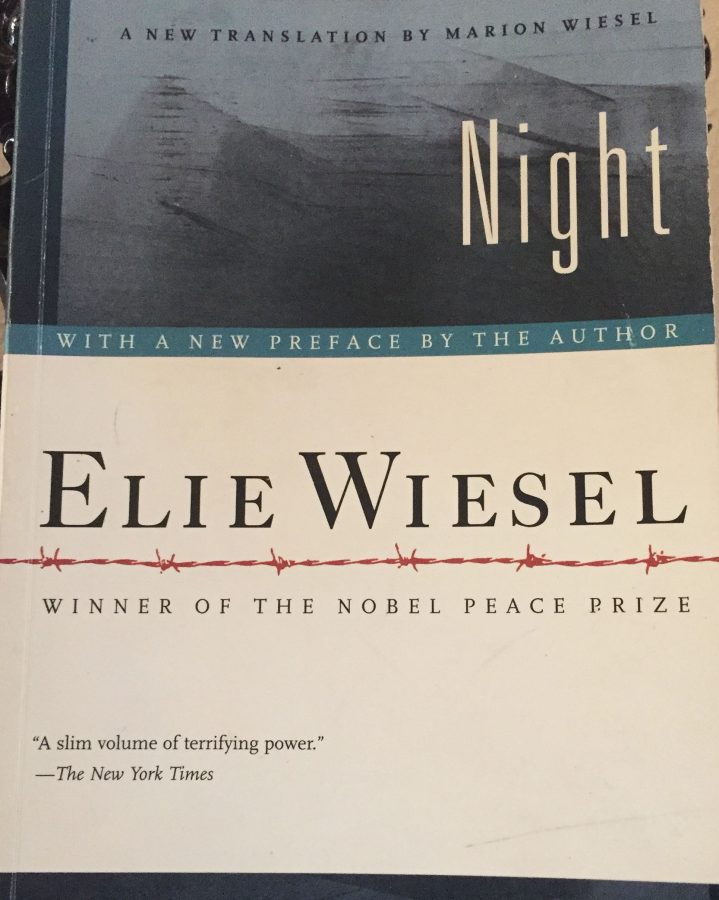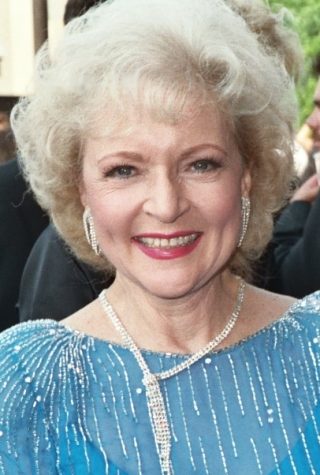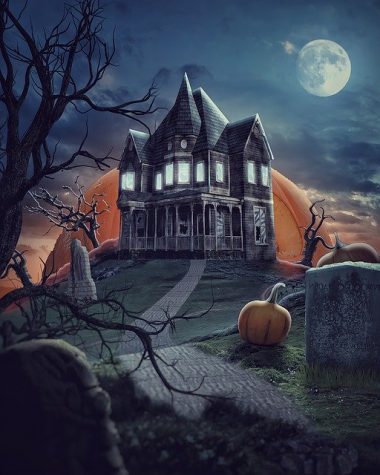Elie Wiesel’s Night Novel Review
A copy of the novel that sophomore Cypress Ranch students were assigned to read.
Many novels have been written about the tragedy known as The Holocaust. Books such as “The Boy In The Striped Pajamas,” “Schindler’s List,” and “The Diary Of Anne Frank” tell stories of what victims had to endure during this time of mass genocide in Europe. Adding to the list of insightful novels, “Night” by Elie Wiesel is a nonfiction read that tells Wiesel’s encounters while inside of Auschwitz concentration camp. English II students have just participated in reading this exceptional account from a survivor’s first person perspective. Throughout “Night”, Wiesel describes the time he spent in Auschwitz at age fifteen and the unjust horrors the camp contained.
In the beginning of the novel, Wiesel speaks about his life before The Holocaust. Wiesel even shares a personal anecdote of a time his friend, Moishe, attempted to warn the Jewish community of their possible fate in concentration camps. At the time, Moishe was deemed crazy and pitied by those around him. In retrospect Wiesel looks back at his friend and realized that Moishe was right all along.
Wiesel describes the transition from his family being forced from their homes to living in compacted ghettos with other Jewish families. While living in the ghetto until they were liquidated, the Jewish people were given little resources but still were able to freely live within the ghetto boundaries. However, soon the families were packed into cattle cars, oblivious to their fate, and were shipped off to concentration camps without food or water for days on end.
In “Night,” Wiesel shares the heart wrenching story of being separated from his mother and three sisters upon their arrival to Auschwitz Concentration Camp. As women and children arrived, the majority were most likely sent to the crematories, while men like Wiesel and his father were sent to work in the camp. The last time Wiesel saw his mother and sisters was during the selection of workers that was primarily done by Dr. Mengele. Mengele soon received the derogatory title of Dr. Death due to the fatal medical procedures he conducted as the head Auschwitz physician.
Wiesel goes into detail about the labor the victims of the camp were forced to undergo and the marches they were forced to endure that resulted in the deaths of an abundant amount of people. An emotional part of the novel is when Wiesel’s father passes away due to illness, however Wiesel shares that it was also mentally liberating that his father would no longer have to suffer inside the walls of the camp. The camp was liberated by US troops shortly after Wiesel’s father’s death.
Even after The Holocaust ended, Wiesel shares the lifetime effects that victims faced everyday such as physical and mental instability. Many victims of The Holocaust had a difficult time transitioning from the camps back into their homes. A major consequence that often goes unnoticed, yet many struggled with including Wiesel, was feeling the need to constantly overeat after not having food for months.
The novel, “Night,” provides a glimpse into the atrocities that took place during The Holocaust. Wiesel’s personal stories and perspective serves as a voice from one who experienced one of the biggest forms of genocide that the world has ever known.
Your donation will support the student journalists of Cypress Ranch High School. Your contribution will allow us to purchase equipment and cover our annual website hosting costs.






